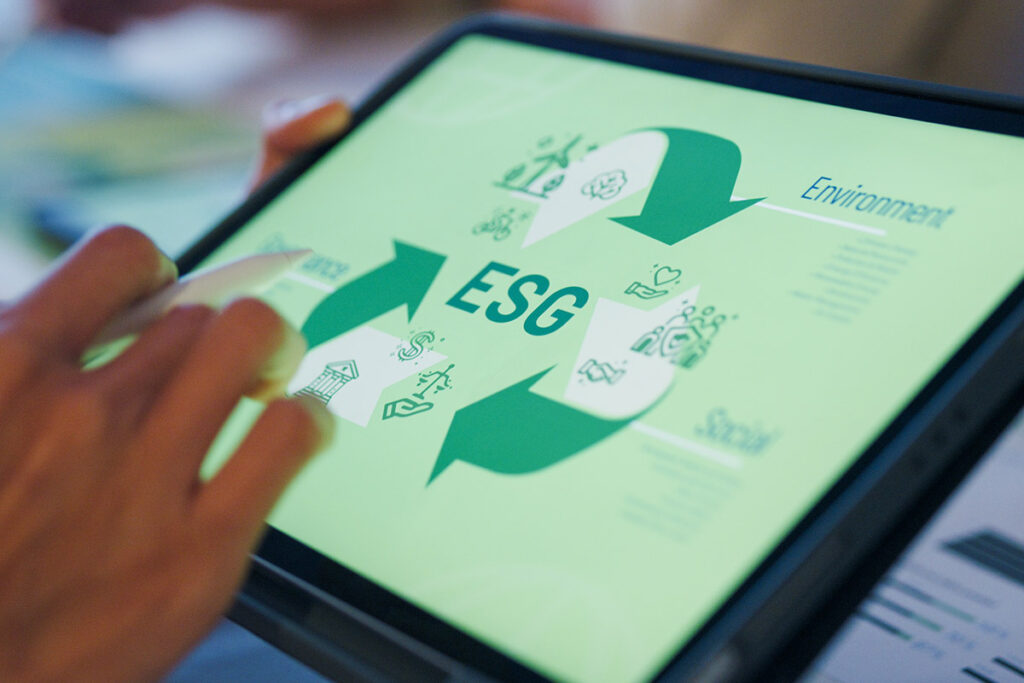With the global rise of environmental, social, and governance (ESG) issues, Belgian businesses are facing increasing demands to demonstrate their commitment to sustainability and ethical governance. It’s no longer just about good intentions: it requires concrete, measurable actions validated by reliable reports.
1. The Importance of the ESG-Assurance Link
ESG criteria are used by investors, regulators, and stakeholders to evaluate companies’ sustainable performance. Assurance (independent verification) ensures that:
- ESG data is accurate, fact-based, and compliant with European standards.
- The risks of greenwashing are eliminated.
Our audit and consulting firm offers ESG assurance services, thereby strengthening report credibility and stakeholder trust.
2. Reporting Obligations in Belgium – the CSRD
The European CSRD Directive, transposed into Belgian law, requires large companies and listed companies (including some small listed ones) to annually publish a sustainability report structured according to ESRS (European Sustainability Reporting Standards), covering the following topics:
- Environment: emissions, energy, circular economy, biodiversity…
- Social: working conditions, diversity, inclusion, community relations.
- Governance: ethics, risk management, human rights, anti-corruption.
The timeline is progressive: starting in 2024 (reports published in 2025), the largest companies are affected, followed by other categories.

3. Simplified Voluntary Application – the VSME
The VSME standard, developed by EFRAG, is a voluntary ESG reporting standard for unlisted SMEs, offering a simplified framework inspired by the ESRS. Launched in December 2024, it is part of the CSRD ecosystem.
Recently, the European Commission adopted it as an official recommendation to facilitate voluntary SME reporting (particularly within the framework of the Omnibus directive).
What the VSME offers:
- Core Module: 11 essential ESG indicators without the need for double materiality analysis – accessible to the smallest entities.
- Full Module: for those with higher ESG maturity, including data on business model, climate risks, Scope 3 emissions, human rights, etc.
Benefits:
- Reduces the complexity and additional cost associated with ESG reporting, especially in response to demands from large companies, banks, or investors.
- Improves transparency, access to sustainable finance, and preparation for future obligations (expanded CSRD or Omnibus).
- Protects SMEs from excessive requirements thanks to the “value-chain cap” provided by the Omnibus.
4. The Role of ESG Assurance Providers
Experts offer:
- Independent verification of ESG data.
- Gap analysis against ESRS or VSME.
- Implementation or improvement of reporting systems.
- Strategic advice for identifying and managing ESG risks.

5. Benefits of ESG Assurance (CSRD & VSME)
Utilizing ESG assurance increases transparency, facilitates access to finance, strengthens reputation, and consolidates relationships with investors, financial institutions, and clients.
Conclusion
In Belgium, the CSRD structures mandatory reporting for large companies. The VSME presents itself as a voluntary alternative tailored for unlisted SMEs, lighter and more pragmatic, yet highly relevant: it allows them to anticipate, gain credibility, and engage in a structured manner in the sustainable transition. A win-win approach!
In Summary
In Belgium, the CSRD requires large companies and listed companies to annually publish a sustainability report compliant with ESRS standards. Unlisted companies can voluntarily apply the VSME (Voluntary Sustainability Reporting Standard for non-listed SMEs), a simplified framework tailored for SMEs. This reporting, whether mandatory or voluntary, covers environmental, social, and governance aspects, and can be certified through independent ESG assurance. This verification strengthens credibility, avoids greenwashing, and improves access to finance as well as reputation among stakeholders.



